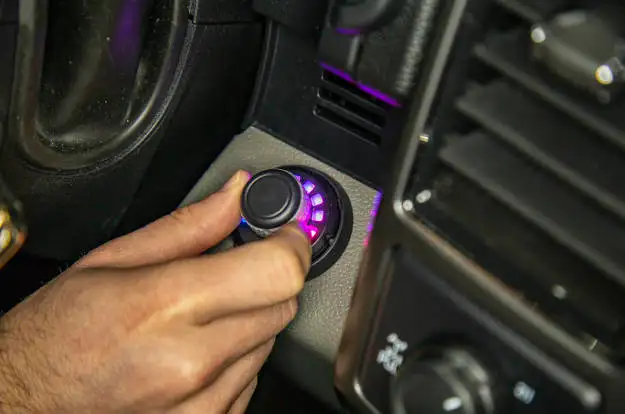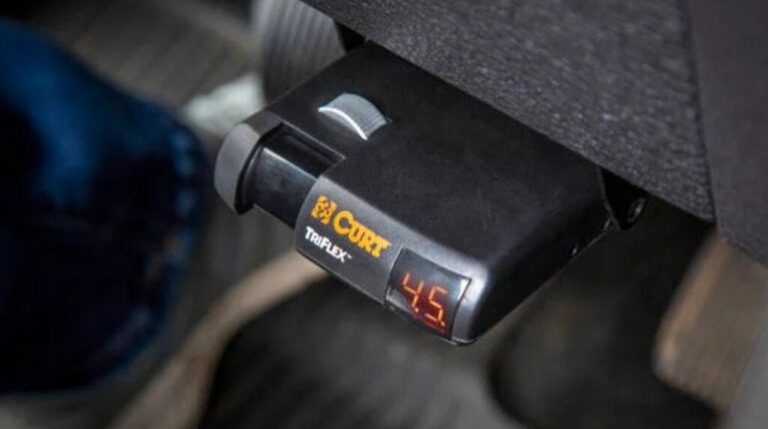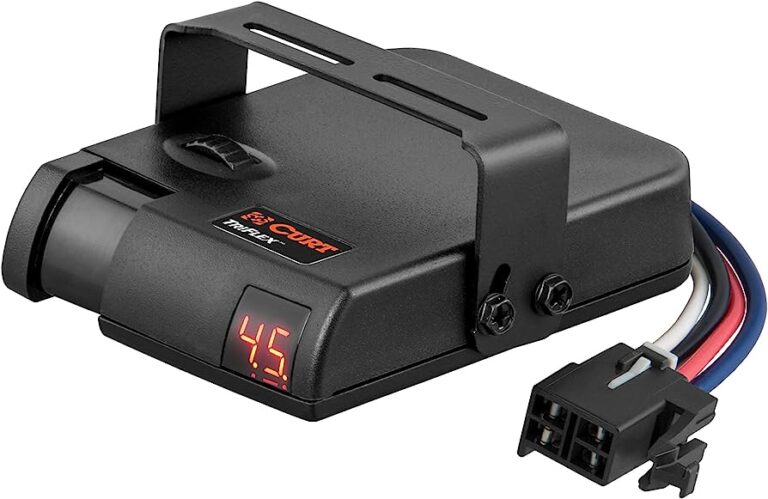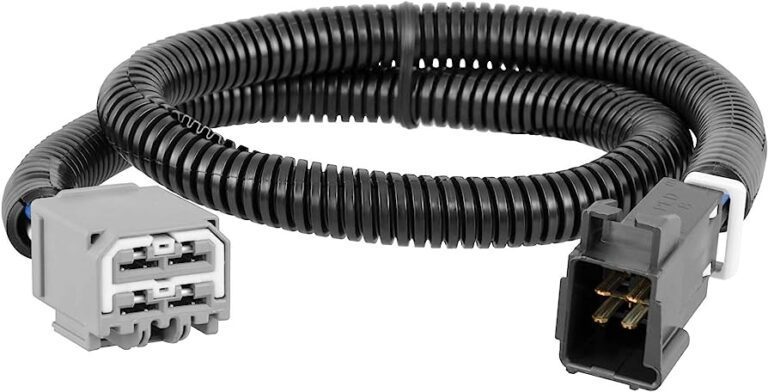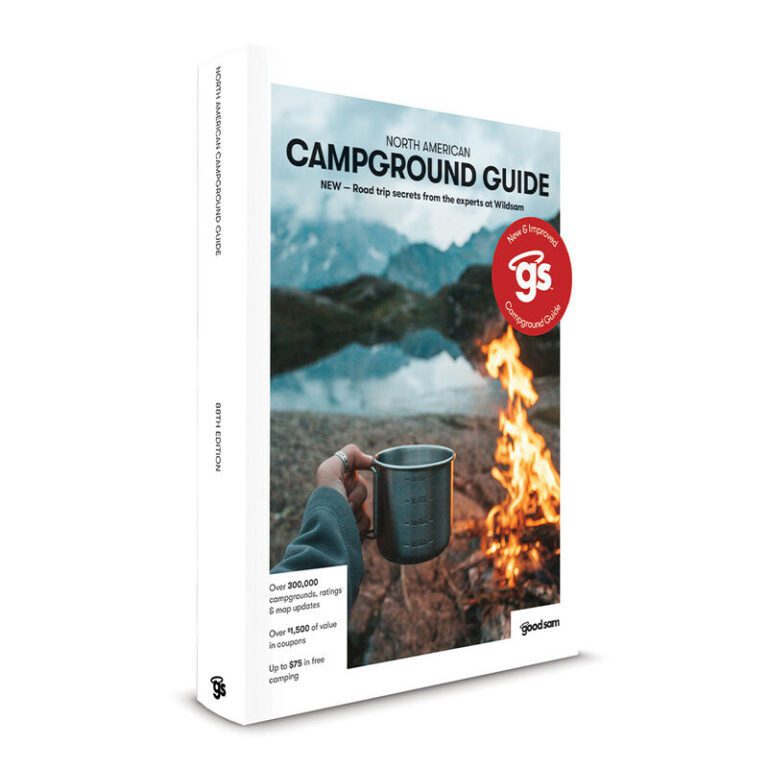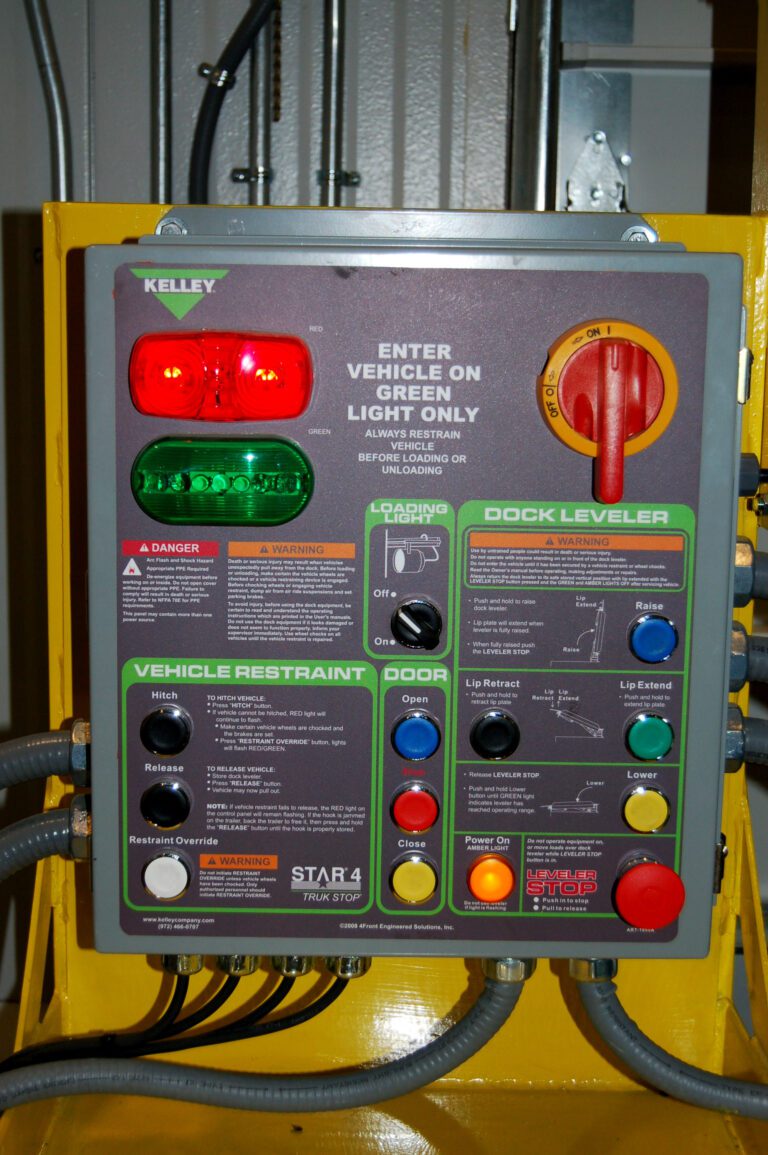What Should Trailer Brake Gain Be Set at? Get the Perfect Setting!
Trailer brake gain should be set according to the weight of the trailer for safe towing. It is recommended to set the brake gain between 3 and 6 when the trailer is fully loaded.
Trailer brake gain is an important factor to consider when it comes to towing a trailer. It determines the amount of braking force applied to the trailer’s brakes when the towing vehicle’s brakes are applied. Setting it at the appropriate level is crucial for safe towing.
The brake gain must be adjusted based on the weight of the trailer and its cargo. Generally, the brake gain should be set between 3 and 6 when the trailer is fully loaded. This will ensure that the trailer brakes are not too aggressive or too weak, providing a smooth and safe towing experience. In this article, we will discuss the factors that affect trailer brake gain and how to set it correctly.

Credit: www.youtube.com
Understanding Trailer Brake Gain
Definition Of Trailer Brake Gain
Trailer brake gain is the amount of force or power that is proportional to how much you depress the brake pedal in a towing vehicle. It is the setting that controls the amount of braking force applied to the trailer’s wheels when the driver of the towing vehicle steps on the brake pedal.
This gain is essential to control and slow down the trailer.
Importance Of Setting The Trailer Brake Gain Properly
It’s important to ensure that your trailer brake gain is set appropriately before towing. If the gain isn’t set correctly, then you could experience issues with poor braking performance, which could lead to accidents. Below are some of the reasons why you should set your trailer brake gain properly:
- It helps to provide a comfortable and safe braking experience.
- When set properly, it helps to reduce the risk of swaying, fishtailing, or jackknifing.
- It helps to reduce the strain on the towing vehicle’s brakes, improving their lifespan.
Components Of Trailer Brake System
The trailer brake system consists of several parts, each playing a crucial role in ensuring that the brake system of the trailer works efficiently. Some of the components of the trailer brake system are:
- Brake controller: The brake controller is the component that is responsible for sending signals to the trailer’s braking system when you press the brake pedal in your towing vehicle.
- Brake drums: These are circular components in which the brake shoes press against to slow down or stop the trailer.
- Brake shoes: These are the components that press against the brake drums when you apply the brake pedal in your towing vehicle.
- Brake pads: Just like brake shoes, brake pads apply pressure on the brake rotor, enabling the braking system to slow down or stop the vehicle.
How To Operate Trailer Brake System
Properly operating the trailer brake system is essential for the safety of yourself, your passengers, and other road users. If you’re new to operating a trailer brake system, here are simple steps to help you:
- Connect the towing vehicle to the trailer and make sure the brake controller is activated and connected.
- Adjust the brake controller gain to suit the weight of your trailer. The heavier the trailer, the higher the brake gain required.
- Test the brake system by driving slowly on a flat surface and applying the brake pedal. If the brake gain isn’t set correctly, adjust it accordingly until you attain the desired braking performance.
- To test whether the brake system is working effectively, try towing your trailer up and down a sloping surface, press the brake pedal, and see if your trailer slows down gradually.
Understanding how trailer brake gain works, why it’s essential to set it correctly, the components of the trailer brake system, and how to operate it, is crucial for every driver towing a trailer. Therefore, before you hit the road, double-check to ensure your brake system is working correctly, and the gain is set appropriately to ensure a safe and comfortable journey.
Factors To Consider When Setting Trailer Brake Gain
Trailer brake gain determines how much braking power is applied to your trailer’s brakes. The appropriate brake gain can help your vehicle and trailer stop safely and aid in preventing accidents. However, determining the ideal brake gain setting for your trailer can be a complex process.
Here are some important factors to consider when setting your trailer brake gain:
Gross Vehicle Weight Rating (Gvwr)
The gvwr of your vehicle is the maximum weight it can carry without being overloaded. You should always set your trailer brake gain based on the gvwr of your vehicle. Some important things to keep in mind are:
- Ensure that your trailer’s weight never exceeds the gvwr of your vehicle.
- Excessive braking can cause locking of wheels and skidding, so avoid excessive braking power.
Gross Combined Weight Rating (Gcwr)
The gcwr is the maximum weight that your vehicle and trailer can carry together. Setting the brake gain for your trailer should always be based on gcwr and here’s why:
- If your trailer weighs more than the vehicle’s gvwr, you’ll need to adjust the brake gain accordingly.
- Ensure that the braking power is not too much that the trailer gets pulled to a stop, or too low that it pushes the towing vehicle forward.
Terrain And Road Conditions
Road and terrain conditions can significantly affect how you apply your brakes. When driving in hilly or mountainous terrains, the trailer brake gain should be higher. Some important things to consider are:
- Sharp corners or curves will require more brake gain.
- Driving on gravel or rocky roads will require lower braking intensity.
Weather Conditions
The weather can also affect how you apply your brakes, so adjusting your brake gain accordingly is crucial. For example:
- In wet or slippery conditions, you’ll need to adjust your trailer brake gain to a lower setting to avoid skidding.
- In dry weather conditions, a higher brake gain setting may be necessary to ensure that your trailer stops safely.
Types Of Trailer Brakes
Different types of trailer brakes require different brake gain settings. Here are some examples:
- Electric trailer brakes require brake gain to be adjusted using a manual controller and brake control that’s installed in the towing vehicle.
- Surge brakes typically don’t need an adjusting mechanism, but you still need to confirm they’re working correctly.
- Hydraulic brakes require a different type of brake controller to change brake gain.
Knowing the factors to consider when setting your trailer brake gain is critical to ensure that you can stop safely on the road. Keep in mind that there are different brake gain adjustments that need to be made based on changing road, weather, and trailer conditions.
By following the right procedures and recommendations, you can make the most of your experience while towing any trailer.
How To Calculate And Adjust Trailer Brake Gain
Determining The Initial Brake Gain Setting
Trailer brake gain is a crucial part of ensuring safe and comfortable towing. Accurately determining the initial brake gain setting is essential to ensure the effectiveness of the brakes. Here are a few things to keep in mind when determining the initial brake gain setting:
- Know your trailer weight: Before you determine the initial brake gain setting, you need to know your trailer’s weight. Make sure to weigh the trailer on a commercial scale or a tongue scale.
- Refer to the manufacturer’s instructions: Every brake controller comes with instructions that detail how to determine the initial brake gain setting. Look up the instructions for setting your controller’s brake gain settings.
- Set the brake gain at 25 percent: Most brake controllers call for the initial brake gain setting to be set at 25 percent.
Testing The Trailer Brakes
After determining the initial brake gain setting, it is essential to test the trailer brakes to ensure that they work efficiently. Here are a few tips for testing your trailer brakes:
- Drive at low speeds: Drive your towing vehicle and trailer at low speeds, such as 15 miles per hour, and apply the brakes. If the trailer isn’t slowing down, then the brake gain needs to be increased.
- Check the brake lights: Make sure that while testing the trailer brakes, the brake lights on both the trailer and towing vehicle are functioning.
- Test on an empty stretch: Test the trailer brakes on an empty stretch of road or parking lot to ensure that you don’t harm anyone else while testing the brakes.
Fine-Tuning The Brake Gain Setting
After testing the trailer brakes, you might find that the brake gain setting needs some adjustments. Here are a few tips for fine-tuning the brake gain setting:
- Increase the brake gain gradually: A gradual increase of brake gain will allow you to find the perfect setting for your trailer brakes.
- Monitor the controller display: Many brake controllers have a display that shows the brake gain setting in use. Keep an eye on the display and make adjustments accordingly.
- Test frequently: It is essential to test the trailer brakes frequently to ensure they’re functioning efficiently. Test the brakes every time you tow the trailer and make any necessary adjustments.
Tips For Safe Trailer Braking
Ensuring safe trailer braking is of utmost importance when it comes to towing. Here are a few tips for safe trailer braking:
- Don’t tailgate: Always maintain a safe following distance when towing a trailer.
- Know your brakes: Knowing the trailer weight and the capacity of your brake system is crucial to ensure safe braking.
- Practice: Aside from performing regular tests on the trailer brakes, it is essential to practice driving and braking with the trailer. Practice can help you get a better feel for how the brakes work and what you need to do in case of an emergency.
To ensure safe and efficient trailer braking, it is essential to determine the initial brake gain setting, test the trailer brakes, fine-tune the brake gain setting, and follow some tips for safe trailer braking. With these steps in mind, you can have a comfortable and safe towing experience.
Common Problems When Setting Trailer Brake Gain
Setting the brake gain of a trailer is important to have a safe and smooth journey. However, if not set correctly, it can lead to various problems. Here are some of the most common brake gain problems and solutions to fix them:
Under-Braking
If the brake gain is set too low, the trailer may under-brake, leading to poor stopping distances, difficulty in reversing and uneven brake wear. To fix this problem:
- Increase the brake gain of the trailer to achieve the proper stopping distance
- Ensure that the trailer gain is at least 25% of the total weight of the trailer
Over-Braking
If the brake gain is set too high, the trailer may stop suddenly and cause the trailer brakes to lock up, which may cause an accident. To fix this problem:
- Decrease the brake gain of the trailer to achieve a smoother ride
- Ensure that the brake gain is not higher than 80% of the total weight of the trailer
Uneven Braking
Uneven braking can be caused by unbalanced weight distribution or incorrect brake gain settings. To fix this problem:
- Ensure that the trailer weight is distributed evenly
- Adjust the brake gain to achieve uniform brake force on all the wheels of the trailer
- Regularly check and maintain the brake system of the trailer
Solutions To Common Brake Gain Problems:
- Slowly adjust the brake gain of the trailer while driving on a flat, straight road
- Always refer to the vehicle’s manual for recommended brake gain settings
- Regularly check and maintain the brake system of the trailer
By understanding and utilizing the proper trailer brake gain settings, you can have a safer and comfortable ride. Always take the necessary precautions when dealing with your trailer brakes to ensure a pleasant and secure journey.
Frequently Asked Questions For What Should Trailer Brake Gain Be Set At
What Is Trailer Brake Gain?
Trailer brake gain refers to the amount of brake force applied to your trailer’s wheels. It is important to set it correctly to ensure that the trailer effectively slows down or stops when necessary.
How Do I Determine The Correct Brake Gain For My Trailer?
The recommended brake gain setting for your trailer can usually be found in its owner’s manual. However, it may vary based on factors such as vehicle weight, road conditions, and weather.
What Are The Consequences Of Setting The Brake Gain Too High Or Too Low?
If the brake gain is set too high, the trailer’s wheels may lock up, causing it to skid and lose control. On the other hand, if it is set too low, the trailer may not slow down or stop effectively, which can also lead to accidents.
Can I Adjust The Brake Gain Myself Or Do I Need A Professional?
If you have experience in adjusting trailer brake gain and have the necessary tools, you can adjust it yourself. However, if you’re not confident in your abilities, it’s always best to seek professional help to avoid any accidents.
Should I Check The Brake Gain Setting Every Time I Use My Trailer?
Yes, it’s recommended to check the brake gain setting every time you use your trailer, especially if you’re traveling in different terrain or weather conditions. This ensures that the brake gain is set to the appropriate level, making your journey safer.
Conclusion
Properly setting the trailer brake gain is essential for safe and smooth towing. By carefully following the manufacturer’s guidelines, you can determine the appropriate brake gain necessary for your trailer. The right brake gain depends on the weight of your trailer and the towing vehicle.
Remember, it’s important to fine-tune your brake gain to make adjustments for the road conditions and the weight distribution of the cargo you’re hauling. Too much gain can cause your brakes to lock up, while too little requires more braking distance.
Knowing your trailer brake gain is an important safety factor that helps protect your loved ones, your towing vehicle, and your cargo. Make sure to consult the user’s manual and do not underestimate the importance of mastering this critical skill.
Keep adjusting your brake gain until you find the right balance, give yourself plenty of time, and don’t hesitate to ask for advice if you’re unsure. Happy and safe towing!

